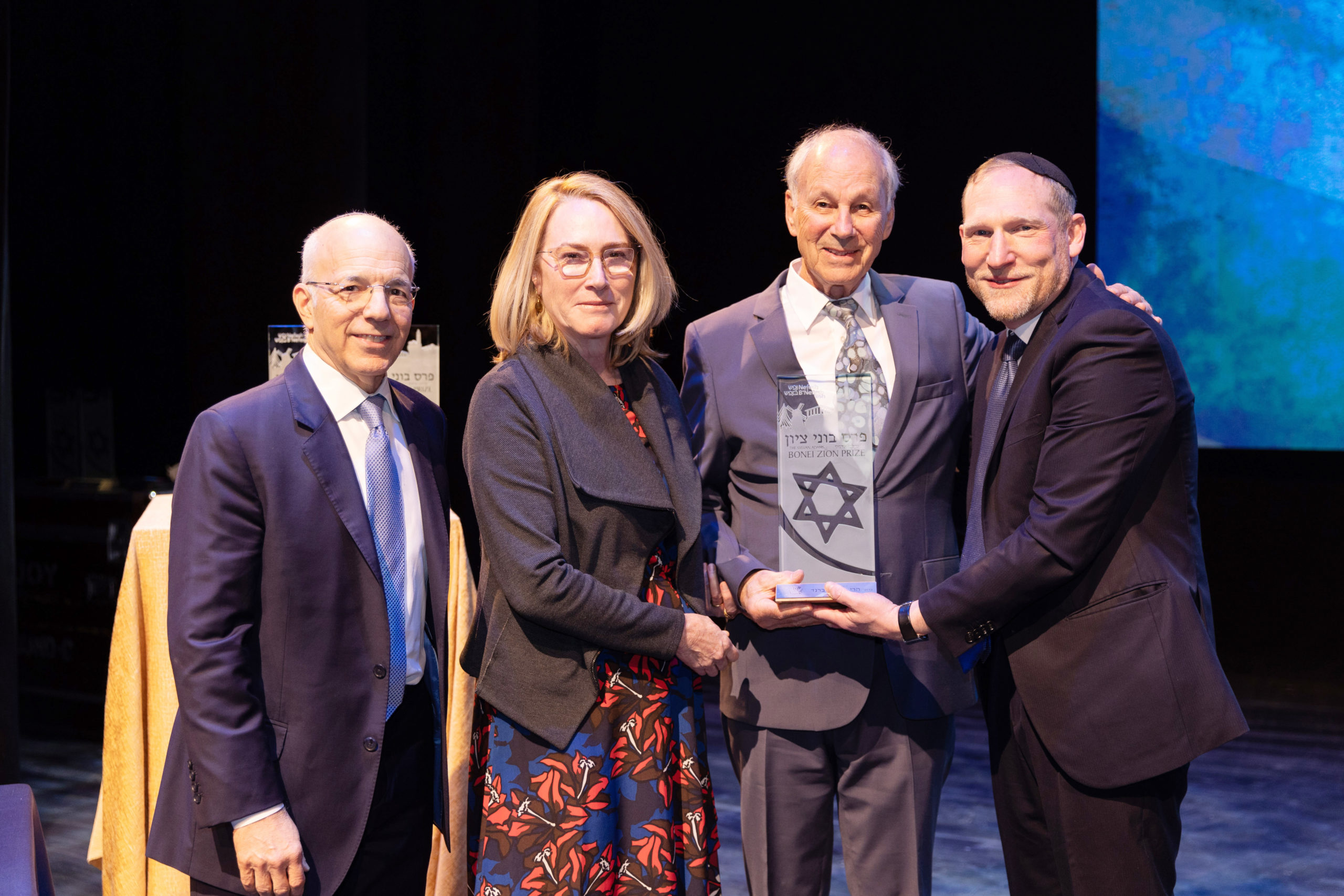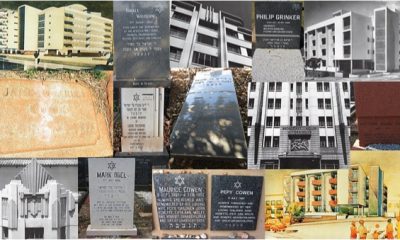
Israel

Ex-South African awarded for changing Israel’s architectural landscape
South African-born Professor Harry Ben Zion Brand was awarded the prestigious Bonei Zion Prize in the field of Culture, Art, and Sport in Israel for his innovation and contribution to changing the Israeli architectural landscape over 50 years.
Industrial architecture, according to Brand, was traditionally considered to be a dirty and neglected field in most Israeli cities, but he has changed this by upgrading the quality of working conditions and creating facilities that are as attractive and comfortable for workers as any other field.
“That was my motivation,” says Brand, who received the award at Nefesh B’Nefesh’s annual Sylvan Adams Bonei Zion Prize ceremony on 28 November. “I would like to think I’ve made some contribution which might be significant in the field of architecture for industry. Since many of the people working in the industry in Israel are highly qualified technically, the working conditions for them must be as good as they are in any other working sphere – banks, companies, and so on.”
Six months ago, Brand received a phone call from Nefesh B’Nefesh’s public-relations associate, Avichai Ivgui, telling him he was to receive an award at its prize-giving ceremony. He laughed it off, thinking Avichai was a fundraiser, but later recognised how prestigious this award was.
The ceremony was attended by 500 people at the Beit Ha’Am Cultural Center in Jerusalem. It honoured English-speaking olim who have made a notable impact on Israeli society.
Brand has dedicated his life to industrial development and planning in Israel since making aliya from South Africa, via England, in 1962. An alumnus of the University of the Witwatersrand School of Architecture, Brand said he was fortunate to have been brought up and educated in South Africa.
“It was a window of opportunity. My parents came to South Africa from Eastern Europe at the beginning of the 20th century. They had a difficult time, in Europe and when they started off in South Africa, as did many other immigrants from Eastern Europe. But they gave us the best opportunity possible. We had a wonderful education at school and university, access to sports activities, and Zionist youth movements. South Africa, since we left in the 1960s, has changed a lot. The time we had there was wonderful.”
Brand’s contribution and innovation altered the Israeli architectural landscape, increasing accessibility, environmental protection, and worker productivity.
He has played a significant role in the planning and building of some of Israel’s most important developments and infrastructure, including the Tefen Industrial Park, Osem Headquarters and Logistic Center, Caesarea Business Park, Jerusalem Technology Park, Beck Science Center in Jerusalem, Nazareth Incubator Park, and many more.
When Brand was sent to the United States in the early 1980s, he conducted a survey of industrial parks and saw how beautiful industry could be. “That was an inspiration, and I tried to emulate it in some of the projects I was given to do in Israel,” he says.
His greatest career achievement was having the opportunity to design industrial facilities, starting with the industrial park in Tefen, northern Israel. “I went on to do a lot of other industrial parks up and down the country as well as industrial campus projects and some industrial buildings, all of which have been of a high-quality kind of architecture for industry. I’ve also had the privilege of working for ex-South African investors in Israel, among them Mendel Kaplan and Graham Beck, so my connection with South Africa has been through the professional channel as well.”
After founding the Israel Planners Association more than 45 years ago, he served as its first chairperson, pioneered the accreditation of architectural schools on behalf of the Council for Higher Education, and served as a professor at the Technion Architecture School, where his granddaughter, Kylie, is currently a student. He has also chaired and served on various committees in the industry, and his architectural and industrial work is displayed in various exhibits around the world.
Brand and his wife, Eva, also an ex-South African, have four children and 10 grandchildren. They visit the country every two to three years, and keep in touch with people there. “I still have family in South Africa,” Brand says. “I have a sister who lives in Johannesburg, and some of her children are still there. Some months ago, my wife and I, and all our children and grandchildren went on a roots tour to South Africa. We visited Johannesburg and Germiston, where I was born and educated, and also Cape Town, where my wife has family.”
Being Jewish is what brought Brand to Israel, he says. “I was involved in the Betar Jewish youth movement in South Africa before coming here to Israel. Although I’m not a practising Jew, I believe in the Jewish renaissance, the re-establishment of the Jewish homeland, and the rebuilding of Israel. It’s a wonderful opportunity to combine my Zionist aspirations and professional endeavours in one field of activity.”
Brand and his wife have lived just east of Tel Aviv for almost 60 years. “We haven’t moved, but we extended our house. We have one daughter who lives in California, but our other kids live in Israel. We see them every Friday night at our place, or at one of their homes. We’re a cohesive family, and everybody gets on well.”
Brand is now retired. “My daughter, Elia, is running the office. She has moved away from industrial development to concentrating on housing for the aged, frail-care centres, and so on. She has become quite a national expert in the field. I look over her shoulder not trying to interfere too much.”
When Brand looks back on the important infrastructure he helped to plan and build, he’s proud of quite a few of them. “The one in Tefen was a ground breaking kind of project. It was unique in its time. That led to the Jerusalem Technology Park, which was more of an urban development. The project I did for Graham Beck in Jerusalem, the Beck Science Centre, is a good building, but no one particular child is preferred over the other. I’ve enjoyed doing them all. It has been a privilege.”






